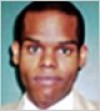By Deauwand Myers
“To argue that to preserve our freedoms we must suspend our freedoms, that to safeguard elections we must cancel elections, that to defend ourselves from dictatorship we must appoint a dictator – what logic is this?” — From Robert Harris’s “Dictator.”
October 2023 marked the 44th anniversary of the death of arguably the most consequential Korean political figure of the 20th century, President Park Chung-hee (Nov. 14, 1917 – Oct. 26, 1979).
Whatever President Park’s faults, and we’ll get to those momentarily, there would be no LG, Samsung or Hyundai, nor the gleaming skyscrapers and immaculate public infrastructure throughout Daegu, Busan and Seoul without President Park Chung Hee’s leadership.
My maternal grandparents actually went to Korea for their 50th wedding anniversary, in the late 80s, when Korea was under the brutal heel of President Chun Doo-hwan, himself a president-cum-dictator. My grandmother marveled at how clean Seoul’s streets were, not unlike ones a person could find in Philadelphia, Pennsylvania, yet free of litter. They were clean to the point of looking unreal. (Recently, I thought about this and smiled in irony. If she could only see Seoul today. As beautiful and impressive as the city is, littering is a problem these days).
"Success comes to those who dare to dream, have the courage to act, and the perseverance to overcome obstacles.” — President Park Chung-hee
What my late grandparents marveled at while celebrating their anniversary was part of Park and his administration's legacy. Through sheer force of political will, shrewd government policies, like massive investments in public infrastructure (ports and highways, for example), and corporate tax incentives to a blessed few burgeoning industrial companies, family-owned conglomerates (in Korean, “chaebol”) of which all the civilized world now knows, like the aforementioned Samsung and LG, Korea thrived.
So great were Korea’s economic and industrial gains under the Park regime, his successor, Chun, attempted to deploy a total political proscription against Park, a kind of national, historical erasure in the minds of the body politic of the assassinated president and all he and his administration achieved. Of course, Chun’s machinations to undo the very memory of Park were a spectacular failure.
“Leadership is not about being popular; it is about making tough decisions" — Park said.
The “Miracle on the Han River,” so dubbed Korea’s breathtakingly fast ascension from the ashes of war and poverty to a thriving, advanced, wealthy and well-functioning democracy, owes much of the foundations for said successes (minus democracy) to Park.
Astonishingly, Korea, a true democracy not two generations old, was able to impeach, convict and jail a corrupt head of state, his very own daughter, Park Geun-hye, while the oldest modern democracy in human history, the United States of America, couldn’t muster the political and moral courage to convict a far worse government executive, former President Donald Trump.
What Park failed to realize, all too late indeed, is absolute power corrupts; the accretion of said power to one’s self leads to a higher chance for failure or fatality or both.
Leadership should not be a popularity contest, for sure, but another word for those who win the most votes in an election is the “popular” vote. Conversely, political dissent by a plurality/majority of the citizenry is to say, “these groups of ideas are unpopular.”
Presidents (autocrats) Putin, Xi, and Park Chung-hee also suffered dearly in one way or the other by the very state they sought to protect. The trauma of that suffering certainly informed and informs their actions, and all of them, to varying degrees, employ cruelty, violence, the threat of violence, imprisonment, torture, and murder to achieve their political aims; of these three, Putin is by far the worst of the bunch.
Park did a great deal to advance Korea’s economic growth, and in that way, changed human history. Advances in computer chips, smartphone technologies, EV batteries, and more, wouldn’t exist without prior decades of the Korean government subsidizing these industries.
But Park’s brutal repression of democracy, like fair elections, crushing political dissent, stifling freedom of the press, and the unlawful imprisonment and torture of political rivals laid the groundwork for nearly another decade of misery by the likes of the brutal and incompetent leadership of Chun.
Unfortunately, Park's daughter learned the wrong lessons about effective governance of a democracy. She infamously had a blacklist of artists and academics who criticized her policies. She even had her administration contact American newspapers decrying the slightest of criticisms against her tenure. Her hubris was very much like her father’s. Hers led to impeachment, imprisonment and eternal disgrace; her father's led to the assassination of him and his wife.
And so, President Park Chung-hee was many things: patriot, husband, father, visionary, narcissist and dictator.
Deauwand Myers (deauwand@hotmail.com) holds a master’s degree in English literature and literary theory, and is a private English teacher.





















 Toi Staff
Toi Staff Gideon Levy
Gideon Levy Belen Fernandez
Belen Fernandez Mort Laitner
Mort Laitner Rami G Khouri
Rami G Khouri Ali Fathollah-Nejad
Ali Fathollah-Nejad Nikkei Editorial
Nikkei Editorial
